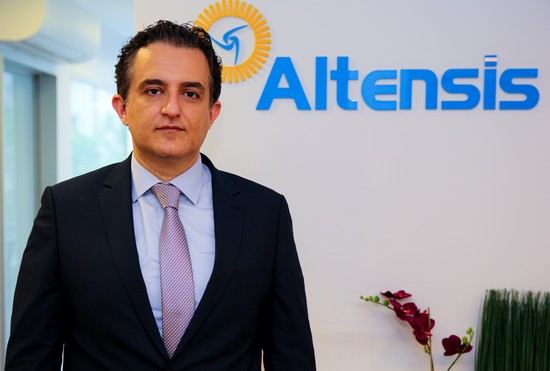Commenting on the newly announced Green Development moves, Altensis Co-Founder Dr. Emre Ilıcalı positively evaluated the official acceptance of the Green movement by Turkey, which affects all economies in the world, especially in Europe.
Commenting on the Green Development Revolution announced by President Erdoğan after the Cabinet Meeting held on October 11, 2021, Altensis Co-Founder Dr. Emre Ilıcalı said, “The next steps will be decisive in this matter.”

If we consider that even our export products will be evaluated according to their ecological effects as a result of the steps taken by the European Union, it is obvious that Turkey should adopt green as the color of development permanently. Because the resources to be allocated for this struggle in the coming period will affect almost every development both in our country and in the whole world.
Attention to the Green Agreement!
Reminding that the European Union Commission has recently prepared a Green Agreement on the fight against climate change, it has submitted the first package (FitFor55) containing the necessary regulations and regulations to the approval of its members. Emre Ilıcalı summarized his evaluation with the following words:
“Climate change should now be the primary agenda of not only the economy management but also every individual and actor in the economy in Turkey. For example, the EU’s Green Reconciliation package, which aims to reduce greenhouse gas emissions by 55 percent by 2030 in the world, reveals the seriousness of the EU with its sanctions such as imposing additional taxes on industrial products according to carbon emissions, applying carbon tax at the border, and tightening air and sea transportation controls. . It is imperative that Turkish exporters, who export or aim to export to the EU, closely examine the FitFor5 package”
Within the scope of the (FitFor55) package, increasing the use of energy efficiency applications and renewable energy, updates in the European Union Emissions Trade rules, necessary infrastructure works for the widespread use of low-emission transportation, implementation of Carbon Tax at the Border to prevent carbon leakage, updating tax policies in line with the targets within the scope of the Green Agreement, and the New It includes the main headings of carbon storage through afforestation policies and increasing forest areas.
Within the scope of the European Union Border Carbon Tax (CBAM) system, it is aimed primarily to impose additional taxation on imported products from some sectors according to their carbon rates, so that the environmental impact is also included in the valuation. Here, iron-steel, cement, aluminum, fertilizer and electricity sectors will be included in this scope first, and then the scope will be expanded. There will be a transition period between 2023 and 2025 for the CBAM taxation mechanism. Companies will only be required to report their carbon footprint and the amount of carbon tax they pay in their home country. After 2026, the system will be operational at full capacity.


